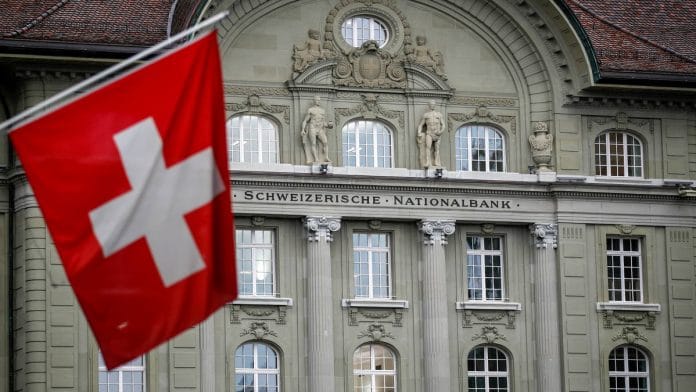New Delhi: India has ranked 74th in terms of money stashed by its residents in Switzerland-based banks. As per the Swiss National Bank’s latest statistics, India accounts for about 0.07 per cent of all aggregate funds parked in Swiss banks.
However, despite Switzerland’s reputation as a ‘tax haven’, most of these funds are likely to be legitimate and not necessarily black money.
ThePrint takes a look at the legitimate ways of transferring funds overseas and the steps taken by India and Switzerland to exchange tax-related information.
The legitimate ways of stashing money abroad
The Reserve Bank of India’s (RBI) liberalised remittance scheme (LRS) permits Indian residents to remit up to $2,50,000 every financial year (from April to March) for permissible transactions, including education, employment, emigration, medical treatment and investments.
The funds can be remitted to any country except for those identified as non-cooperative by the Financial Action Task Force.
Other than transfers made under the LRS scheme, some of the deposits in Swiss banks can also belong to non-resident Indians and those who had earlier held an Indian passport, but are now foreign passport holders and are, therefore, not liable to pay tax in India. In such cases, the funds are legitimate and not unaccounted wealth of Indians stashed abroad.
The Income Tax department had found that many of the names of Indian businessmen in famous data leaks, including the HSBC list and Panama Papers, were of people who had legitimately transferred their funds.
Moreover, most tax evaders may have already exited Swiss banks to avoid prosecution under the stringent Black Money (Undisclosed Foreign Income and Assets) and Imposition of Tax Act, 2015.
Also read: Minutes prior to demonetisation, RBI had warned PM Modi of no material impact on black money
India-Switzerland deal
After years of extensive negotiations, India and Switzerland had entered into an automatic information-sharing agreement in 2016 through which India will get information about its residents and their bank holdings with effect from January 1, 2018, thus ending an era of ‘banking secrecy’. India will start getting the information this year for 2018.
India can obtain information prior to 2018 only if it has legitimate sources of specific information regarding a tax evader.
Deal ended years of disagreement
The 2016 pact ended years of disagreement between India and Switzerland over sharing of tax-related information as Switzerland was keen to protect the identity of the account holders.
Automatic exchange of information is a global standard developed under the aegis of Organisation for Economic Cooperation and Development (OECD) that seeks to end the era of banking secrecy and promote the flow of financial information, including bank balance, dividends, interest income and sales proceed used to calculate capital gains and tax.
Also read: Black money of Indians stashed abroad is in range of $216bn and $490bn, govt reports







Because Swiss bank is a black bank